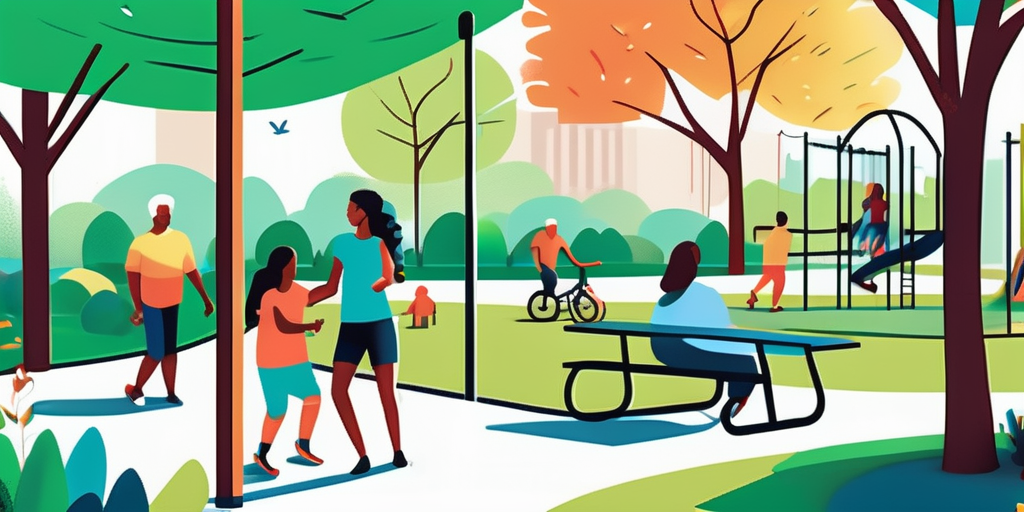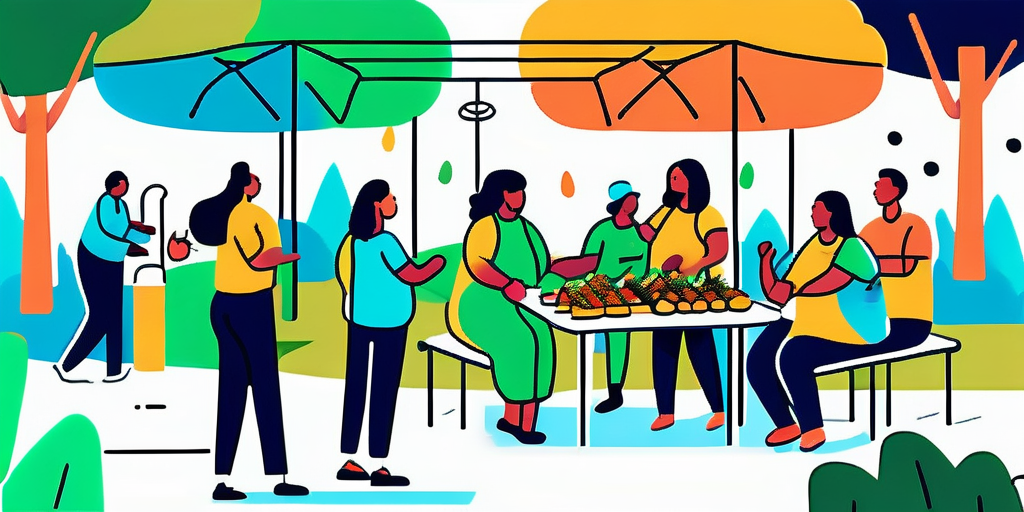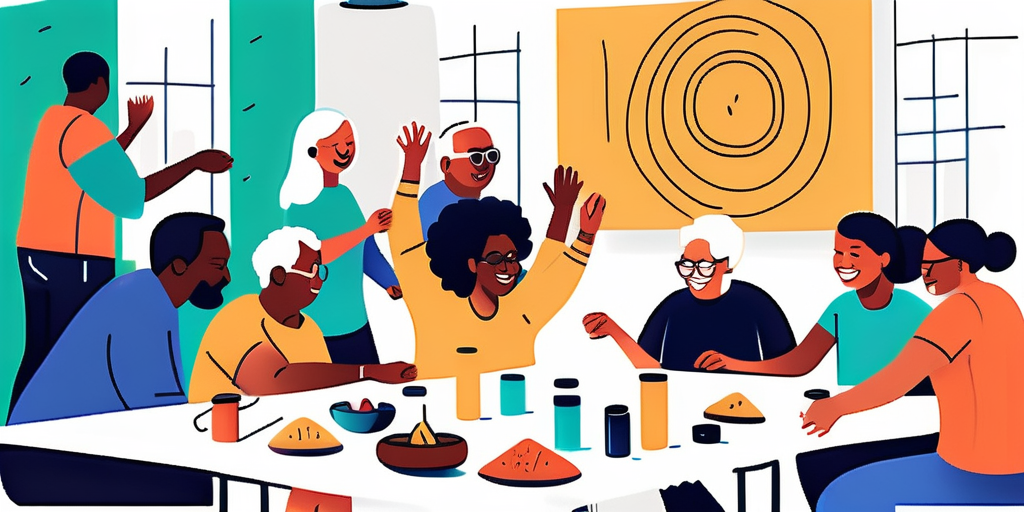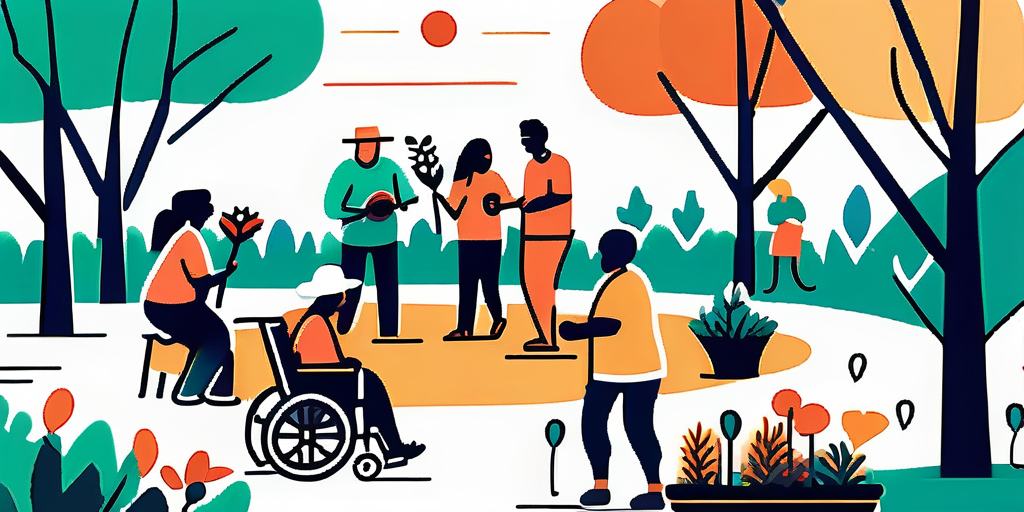
Intergenerational bonds refer to the relationships and connections that exist between individuals of different age groups, typically across at least two generations. These relationships play a crucial role in both the personal development of individuals and the overall health of community dynamics.
Strong intergenerational bonds can help foster mutual understanding, ensure passing of wisdom, and enhance the quality of life within a community. They provide an enriching environment where young people can learn from the experiences of older generations, while older individuals can gain fresh perspectives through the eyes of the youth. Such exchanges often lead to the development of skills and knowledge that are beneficial for both parties. For instance, younger individuals may introduce older adults to new technologies, while older generations can share invaluable life lessons that are often overlooked in today’s fast-paced world.
Ultimately, these bonds create a fabric of support that not only enriches individual lives but also fortifies the community as a whole. Through organized gatherings and events, communities can facilitate opportunities for interaction among generations, promoting a culture of connectedness. Activities such as storytelling sessions, craft workshops, or community gardening projects can serve as platforms for these interactions, allowing for the sharing of traditions, skills, and stories that might otherwise remain untold.
Intergenerational bonds are invaluable in today's society as they address various societal issues, including loneliness, social isolation, and generational divides. By cultivating these relationships, communities can nurture an ecosystem of empathy and understanding, which is essential to social harmony. In many urban settings, the rapid pace of life can lead to a disconnect between generations, making it all the more important to create spaces where they can come together and engage meaningfully.
Moreover, fostering intergenerational relationships allows for shared experiences that enhance emotional well-being. When individuals of different ages collaborate or simply share stories and experiences, they build a safe space that allows for healing and understanding, particularly in times of societal stress. This mutual support can be crucial during challenging times, such as during economic downturns or public health crises, where the wisdom of experience can guide younger generations through uncertainty, while the enthusiasm of youth can inspire resilience and adaptability in older individuals.
The development of communities is profoundly influenced by intergenerational bonds. These connections help to unify diverse age groups, creating a shared sense of purpose and belonging. When people from different generations work together, they often identify common goals that benefit everyone involved. This collaborative spirit can lead to innovative solutions to local challenges, as the blending of different perspectives often sparks creativity and new ideas that might not have emerged in a more homogeneous group.
Additionally, having intergenerational bonds can boost volunteerism and active participation in community initiatives. Young people can bring energy and innovative ideas, while older individuals contribute wisdom and experience, leading to balanced and effective community development strategies. Programs that encourage mentorship, such as youth leadership initiatives paired with elder guidance, not only help to develop the skills of younger participants but also instill a sense of purpose and fulfillment in older adults, creating a win-win situation for all involved. This symbiotic relationship can lead to a more vibrant and cohesive community, where every generation feels valued and empowered to contribute to the common good.
Tennessee National has made it a priority to leverage community events to strengthen intergenerational bonds. By providing platforms for different age groups to connect, learn from one another, and collaborate on projects, they have become a model for other communities looking to achieve similar objectives. This commitment to fostering relationships is not just about creating social opportunities; it’s about building a resilient community where everyone feels valued and heard.

These events are carefully designed to cater to diverse interests and abilities, ensuring that everyone feels included. From educational workshops to recreational activities, Tennessee National creates a vibrant atmosphere conducive to relationship-building across generations. The inclusion of various activities encourages participation from all community members, regardless of their age or background, thereby enriching the social fabric of Tennessee National.
Tennessee National organizes a wide variety of community events that cater to different age groups and interests. These events include:
By offering these diverse activities, Tennessee National fosters an environment where connections are naturally formed, enriching the community as a whole. Additionally, these events often incorporate local culture and traditions, allowing participants to celebrate their heritage while learning from one another. This cultural exchange not only enhances the enjoyment of the events but also deepens the understanding and appreciation of the community's diverse backgrounds.
Community engagement is essential for creating vibrant and thriving neighborhoods, and Tennessee National’s events serve as a cornerstone for this engagement. By bringing together people from various backgrounds and age groups, these events help break down barriers and encourage collaboration. The intentional design of these gatherings promotes dialogue and interaction, allowing participants to share their unique perspectives and experiences.
Interactions that occur during these events often extend beyond the gatherings themselves. Many participants forge friendships, leading to future collaborations on community projects, neighborly support, and a tangible sense of belonging. This ongoing engagement is vital for sustaining community spirit, as it encourages individuals to take an active role in shaping their environment. Moreover, the skills and knowledge exchanged during these events empower residents to initiate their own projects, fostering a sense of ownership and pride in their community.
Furthermore, community events create a positive feedback loop: the more individuals get involved, the more they contribute to a culture of participation and collaboration, ultimately leading to a stronger, more interconnected community. This cycle not only enhances the quality of life for residents but also attracts new members who are drawn to the vibrant and welcoming atmosphere that Tennessee National has cultivated.
The synergy between community events and intergenerational bonds cannot be understated. Events designed with inclusivity in mind serve as a fertile ground for these bonds to flourish. They facilitate meaningful exchanges between ages, allowing for the sharing of experiences, ideas, and traditions.

Moreover, community events challenge stereotypes often held between generations. When older adults engage actively with youth, they debunk myths of apathy and disinterest, while young participants learn that older generations possess valuable knowledge and skills. This dynamic not only enriches individual lives but also strengthens the fabric of the community itself, fostering a sense of belonging and mutual respect.
In addition to personal interactions, community events often highlight the rich tapestry of local history and culture, providing a backdrop for storytelling that resonates across ages. For instance, a local festival might feature traditional crafts or music that older generations have cherished, while younger attendees can contribute contemporary interpretations, creating a vibrant dialogue that honors the past while embracing the future.
Community events play a crucial role in addressing generational gaps that may exist due to societal trends or technological advancements. These gatherings create opportunities for dialogue that would not necessarily occur in everyday life.
By engaging in activities together, different generations can share their perspectives on various topics, from social issues to personal experiences. This interaction helps foster respect and appreciation for one another, which is essential in bridging generational divides. Activities such as collaborative art projects, intergenerational sports competitions, or community gardening not only promote teamwork but also encourage participants to learn from each other’s strengths and viewpoints, enriching the community's collective wisdom.
Furthermore, the role of technology in these events cannot be overlooked. Many community gatherings now incorporate digital platforms to engage participants, allowing older generations to learn from younger ones about social media or online tools, while the youth can gain insights into the historical context behind certain practices or traditions. This reciprocal learning environment nurtures curiosity and empathy, essential components in building lasting intergenerational relationships.
The success of community participation in enhancing intergenerational relationships lies in the shared experiences it creates. As individuals of all ages come together for common causes, they cultivate trust and friendships that transcend age barriers.
Active participation can also lead to mentorship opportunities, where older individuals guide younger participants in their educational or career paths, benefiting both parties involved. These connections can result in enriching diverse pathways for personal development, further solidifying intergenerational bonds. For example, a retired professional might share invaluable career insights with a high school student exploring future options, while the student might introduce the professional to new trends in technology or social issues, creating a mutually beneficial exchange.
Moreover, community events often serve as a platform for collaborative projects that address local needs, such as neighborhood clean-ups or charity drives. These initiatives not only foster teamwork but also instill a sense of purpose and accomplishment among participants, reinforcing the idea that every generation has a role to play in shaping their community. As they work side by side, the barriers that often separate them begin to dissolve, paving the way for deeper understanding and lasting friendships.
Promoting intergenerational bonds has long-lasting benefits for both individuals and the community. The cultivation of these connections supports social well-being and fosters resilient community structures that can withstand challenges.

Moreover, communities that prioritize intergenerational relationships often witness lower rates of isolation and loneliness, enhancing overall happiness and life satisfaction for their residents.
Social cohesion is critical for community stability, and intergenerational bonds are vital in enhancing this aspect. Through shared experiences, individuals of different ages create networks of support that serve as a buffer against conflicts and misunderstandings.
Communities that thrive on social cohesion enjoy lower crime rates, increased volunteerism, and an overall sense of well-being among members. This stability fosters an environment conducive to growth and development for all generations.
The future of communities that cultivate strong intergenerational bonds is promising. These communities are likely to develop robust social networks that provide support in times of need and explore creative solutions to shared challenges.
As these bonds strengthen, individuals will feel more motivated to contribute to their neighborhoods, resulting in heightened civic engagement and community pride. Ultimately, a thriving intergenerational community can serve as a model for others, showcasing the profound impact of these enriching relationships.
Communities looking to replicate Tennessee National's success in fostering intergenerational bonds can implement several effective strategies. Learning from their approach can streamline the process of creating inclusive and engaging events.
One of the key lessons from Tennessee National is the importance of inclusivity in event planning. By considering the needs and interests of various age groups, communities can design activities that engage everyone.
Additionally, creating opportunities for mentorship and learning exchanges between generations can serve as powerful catalysts for building relationships. Fostering an environment where younger individuals feel comfortable seeking guidance from their elders strengthens community ties.
To successfully implement community events that promote intergenerational bonding, organizing committees should consider the following steps:
By following these steps, communities can forge deep intergenerational bonds that enrich their social fabric and contribute to the well-being of all members.